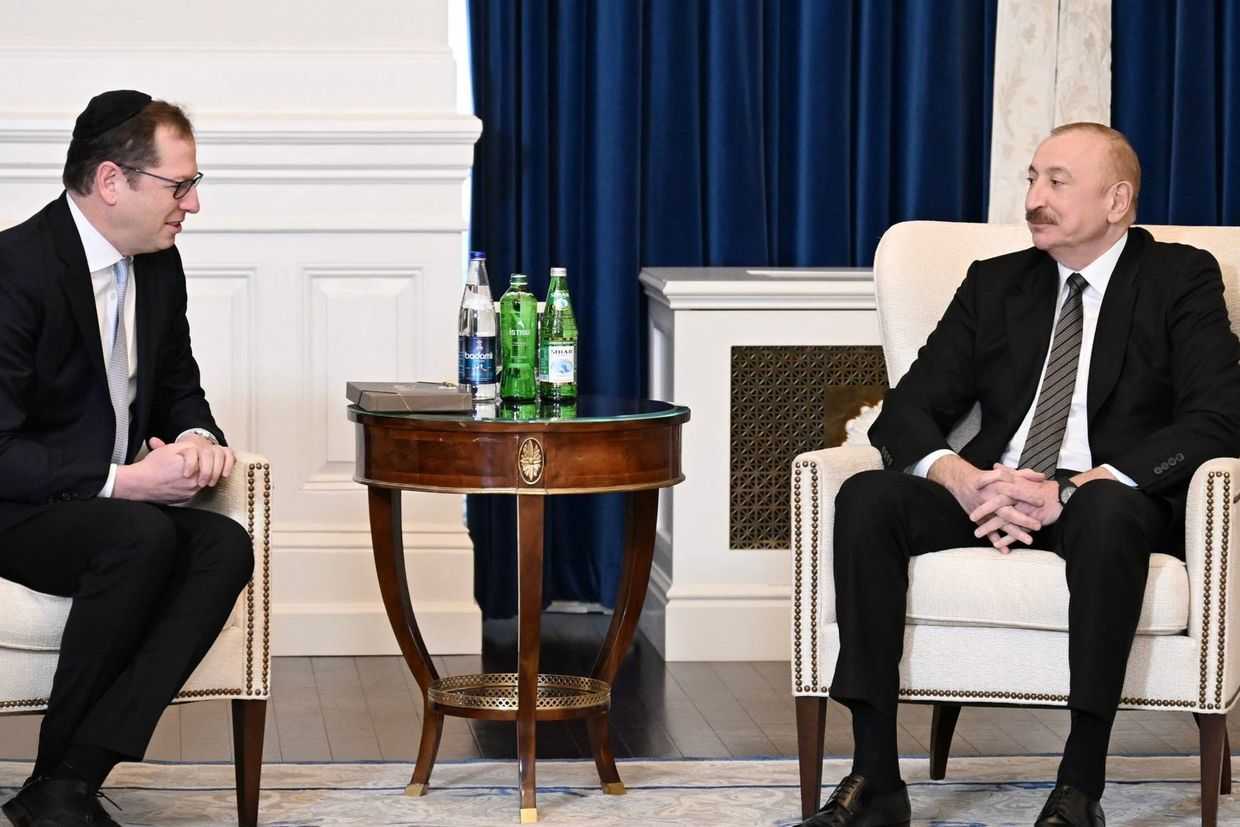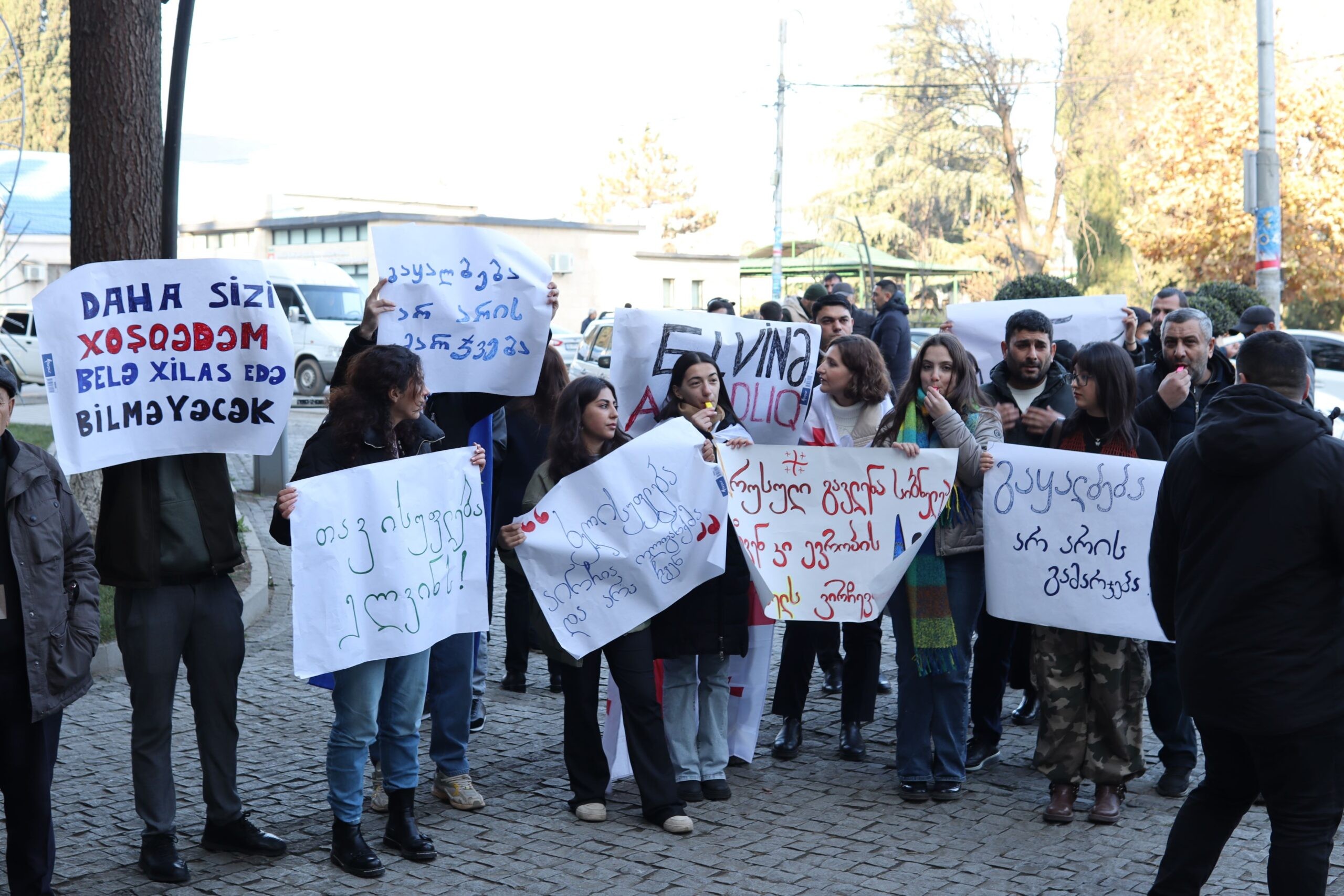
Georgian-Azerbaijani activists have held an anti-government demonstration in Marneuli, one of Georgian Dream’s most loyal voter base.
On 4 December, human rights activists, representatives of public organisations, school children, civil activists, and representatives of opposition parties from various municipalities across Georgia’s eastern Kvemo Kartli region gathered at Marneuli’s District Electoral Commission building 22, located only a short distance away from the city hall.
Police soon blocked the entrance to the building, watching the gathering protesters with smiles on their faces. Their attitudes did not appear to change as protesters began to voice their positions.
First and foremost was that the country’s deviation from the path of European integration was unacceptable to them.
After around 15 minutes, the demonstrators decided to move to the Marneuli Municipality building, where they stayed despite an increased police presence.
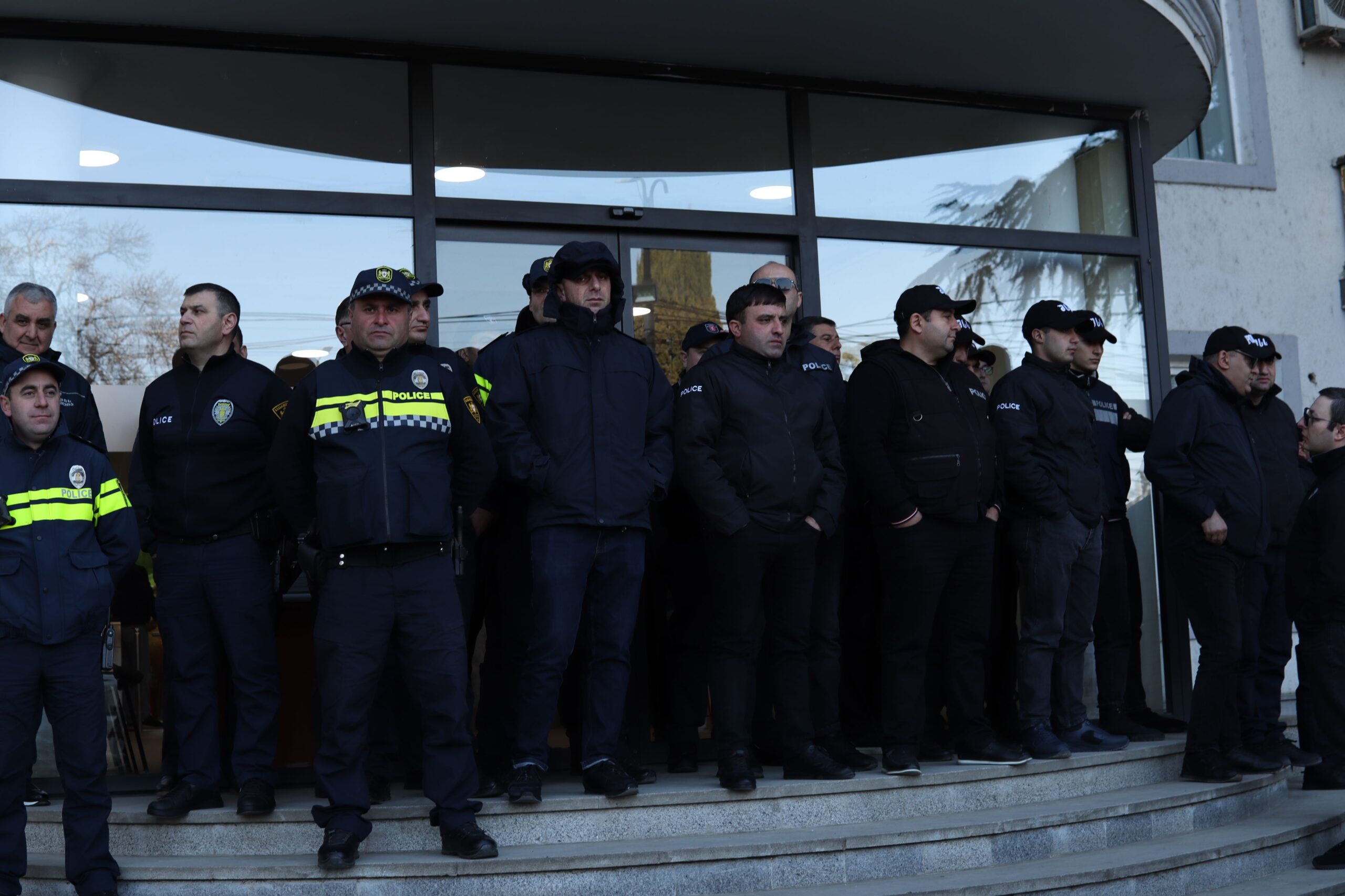
As the protest action continued, passers-by began to also gather, listening to the demonstrators.
According to Georgian-Azerbaijani activist Aytaj Khalilli, this protest was notable because it showed that even the regions actively joined the process going on in the capital, Tbilisi.
‘We can say that in the region, these actions are carried out in different ways, even in Kutaisi. And for the people in the centre, who participate in this struggle every day, every night, the presence of voices from the region creates additional motivation and a certain strength’, Khalilli tells OC Media.
‘The captains of the falsifications in the election are sitting here’
Marneuli was one of the regions where Georgian Dream received a large majority of the vote during the 26 October parliamentary elections.
At the same time, it was one of the municipalities most marked by election fraud, with videos of a particularly egregious case of ballot stuffing being shared across social media and leading to the cancellation of a district’s votes.
‘Especially in the last elections, in our region, in Marneuli, and in the regions where minorities live, we saw a particularly large increase in falsifications’, Khalilli says. ‘Unprecedented results were established. That is why it is very important that the decentralisation of protests happens in the regions, showing that we are part of this struggle.’
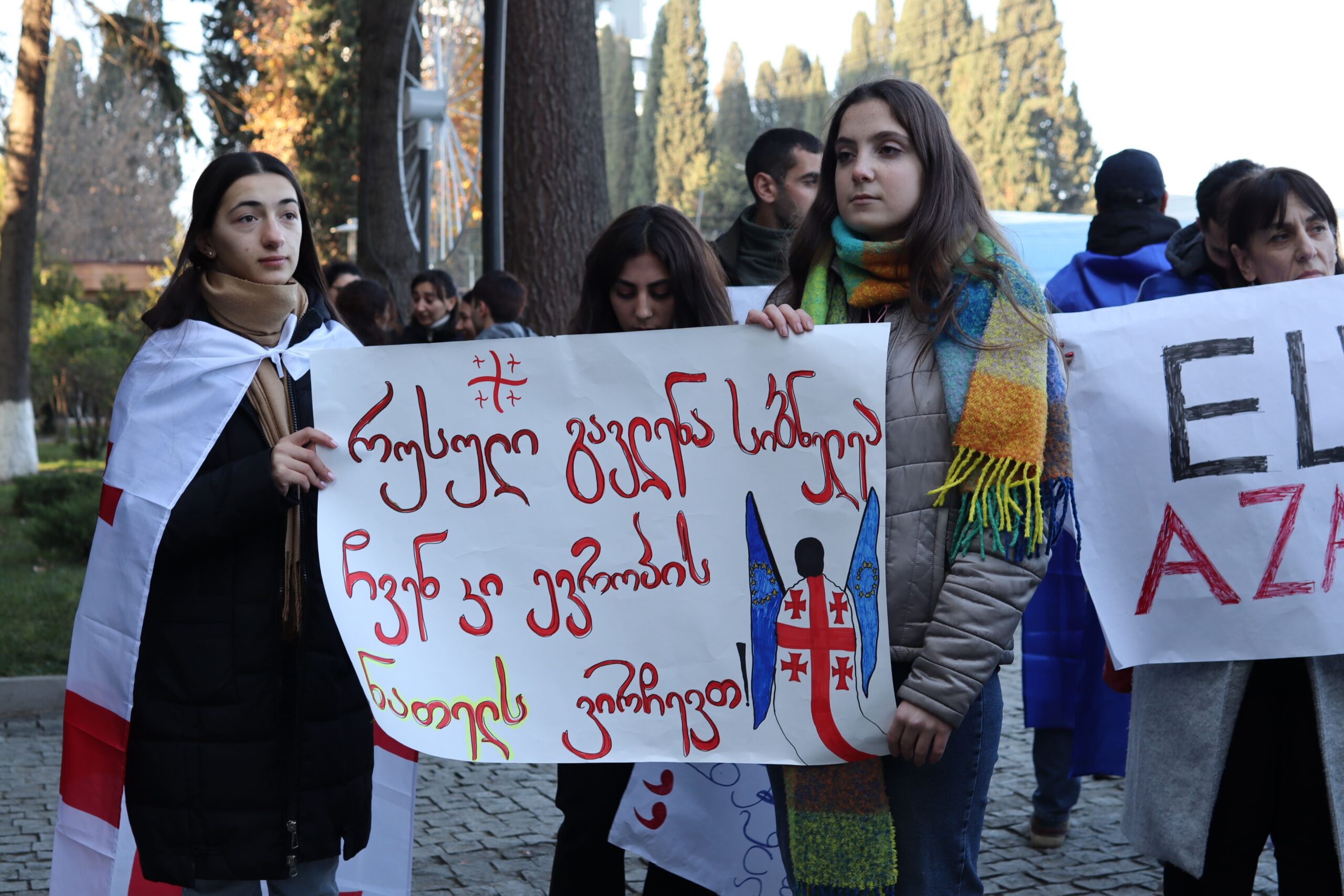
As the demonstration continued, activists gave speeches, which were listened to by those gathered as well as others just walking past who stopped out of curiosity.
One such passer-by, Jondo Gveladze, tells OC Media that he had been one of the Central Election Commission (CEC) members at polling station No. 54 in Marneuli.
‘The election was chaos, and the polling station was like a revolving door. Other CEC representatives registered voters several times. At least in the polling station, the number of used ballots was more than the number of voters’ Gveladze says.
He adds that if the election had not been falsified, the opposition would have won.
This opinion is shared by one of the protesters, Oktay Kazimovi, an MP in the new parliament from the opposition For Georgia party. The party is currently boycotting parliament, refusing to take up their seats.
‘We cannot say that the current government, which is de facto, won the election, that is why we couldn’t say the voters supported them. If the massive falsification did not happen, they never would have won this election’.
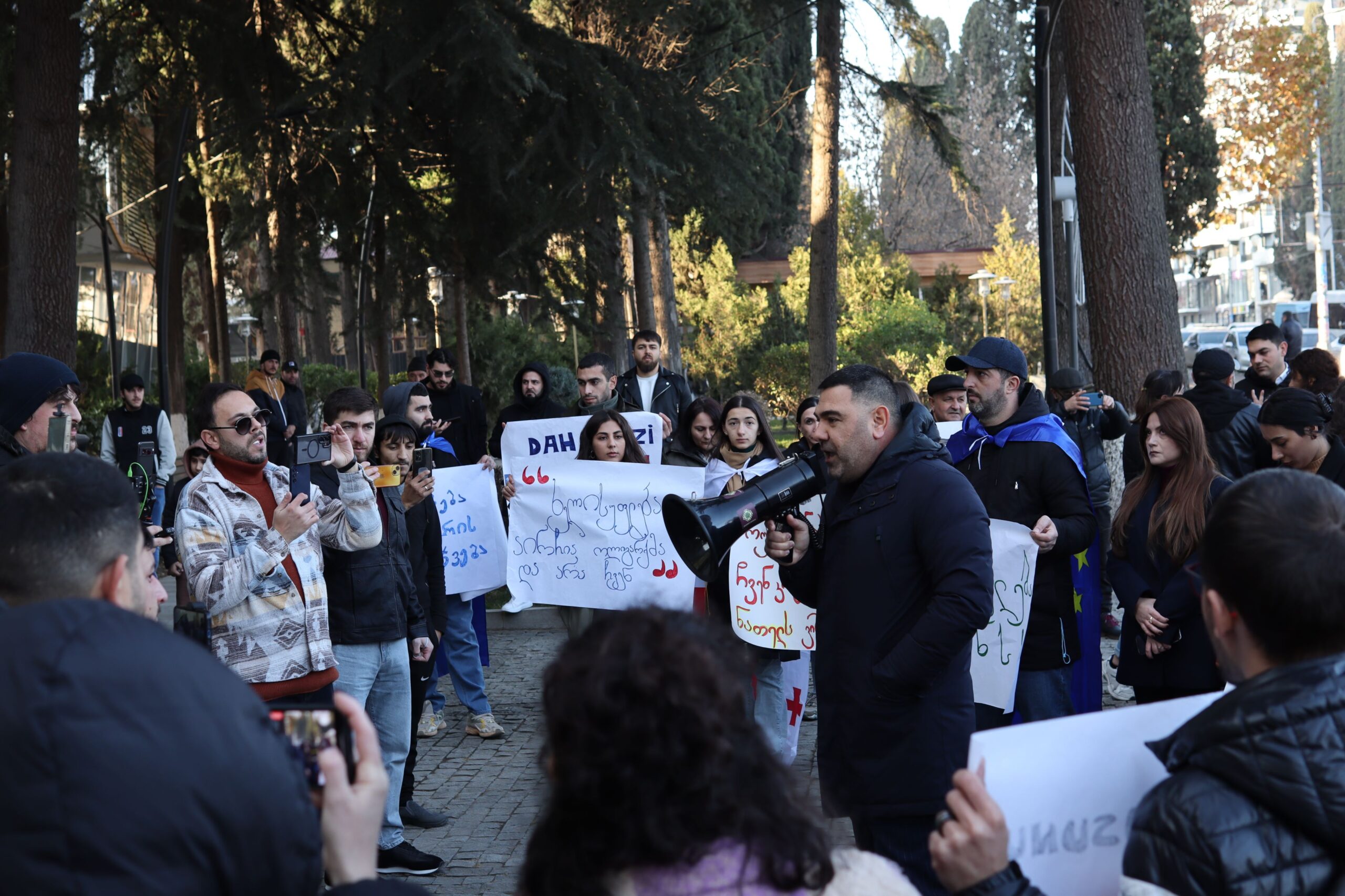
Another activist, Tozu Gulmammadli, tells OC Media that while the protests around election fraud have been continuing on-and-off for around a month, mainly in Tbilisi, they decided to hold one in Marneuli to draw attention to the system of falsification in the municipality.
‘Our protest continues in front of the Marneuli Municipality building because the captains of the falsifications in the election are sitting here.’
According to Gulmammadli, these people created a system by which they paid voters a ‘social pension’ of around ₾200 ($70), after which the people voted in favour of Georgian Dream.
‘A big percentage of the falsification happened in the regions where minorities live. These people are black spots on [our community]. And we want to look at their faces and to show them that we are against them. Our main demand is a new election’.
‘Tatar, go, to your country, and ask for your rights from Ilham Aliyev’
Discrimination against ethnic Azerbaijanis in Georgia was another focus of the demonstration.
The day prior, on 3 December, Georgian-Azerbaijani activist Elvin Karimov joined Gulmammadli at the pro-EU and anti-government demonstrations in Tbilisi. That night, Karimov was arrested in front of Gulmammadli and dragged into a police car, where he was beaten.
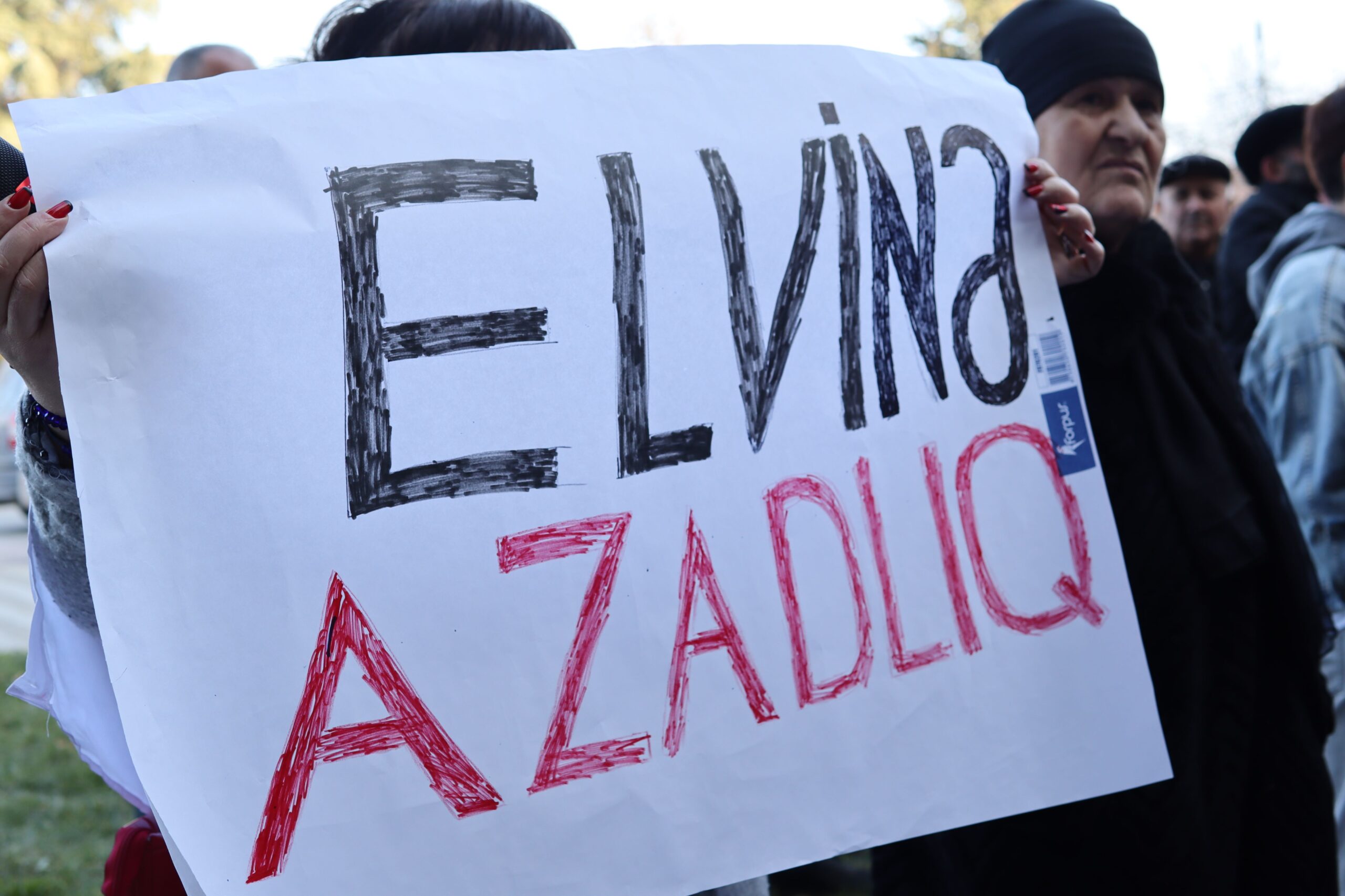
‘The number of cases of verbal or written pressure on members of our family and at the same time on ourselves has increased. And now one of our friends, Elvin Karimov, is in prison’, Khalilli says.
According to her, when Karimov was detained, the police told him ‘You, Tatar, go to the authorities of Azerbaijan. Go to your country and ask for your rights from Ilham Aliyev’.
Tatar is an ethnic slur directed at ethnic Azerbaijanis.
Khalilli said that while police were exerting pressure on many protesters to stop them speaking out, ethnic Azerbaijanis had faced ‘additional discrimination and harassment’.
Jeyhun Muhammadali, who ran in the parliamentary elections as an opposition United National Movement party member, questioned why the police called the Azerbaijani community in Georgia ‘Tatars’ in the first place, emphasising that Georgia ‘is also our homeland’.
‘What is the meaning of bringing up the Aliyev regime? We are Georgian citizens and we have equal rights like you’, Muhammadali said at Wednesday’s demonstration.
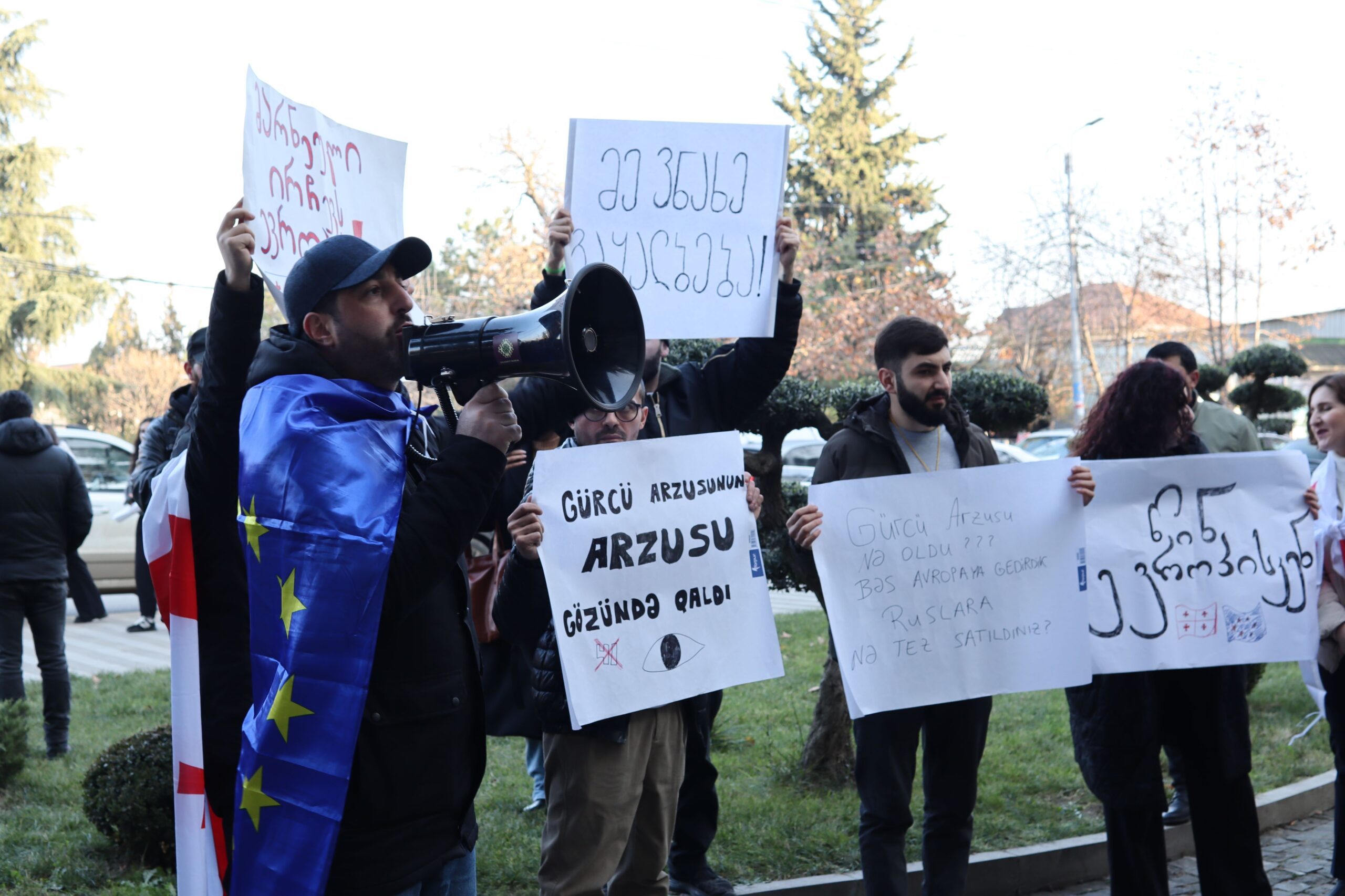
In turn, Gulmammadli said that ‘no one has the right to discriminate against someone based on their ethnicity. We could not close our eyes to these words’.
Wednesday’s protest ended calmly; there was no reaction from the police.
While Baku’s pro-government media outlets were late to the protest, they did not forget to highlight that the demonstration was not very big, at least compared to the protests occurring in the capital.
The following day, Karimov’s trial was held in Tbilisi.
Oktay Kazimovi later posted on social media that ‘the Azerbaijani community has a political prisoner. The sold-out judge, prosecutor, and two false witnesses, policemen, closed the case because he participated in demonstrations. He was sentenced to eight days in administrative custody. But they can’t intimidate us’.
Read in Russian on SOVA News.






